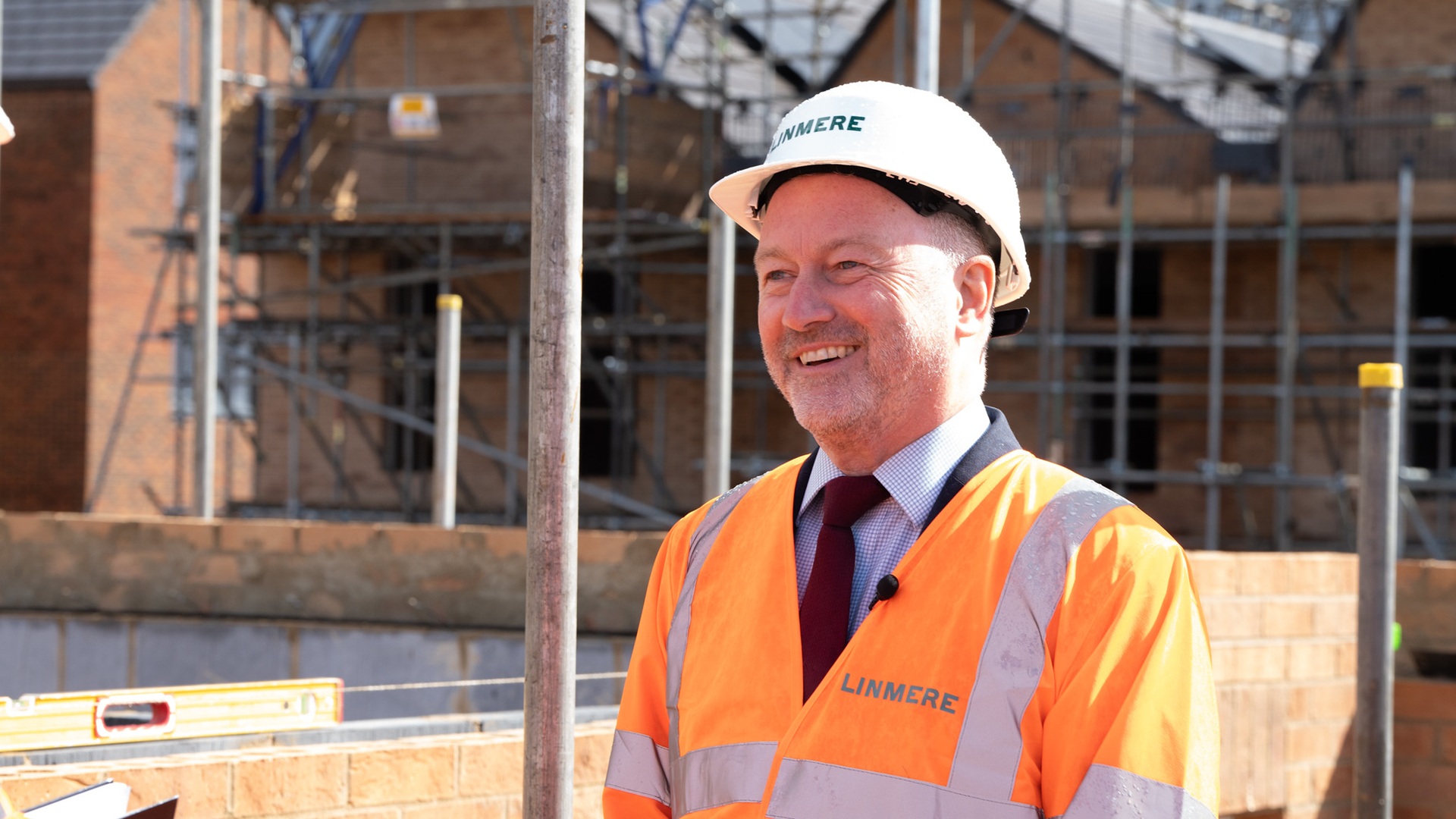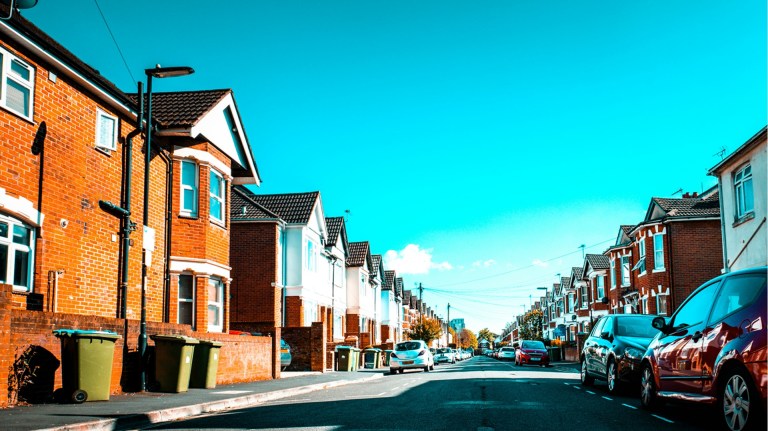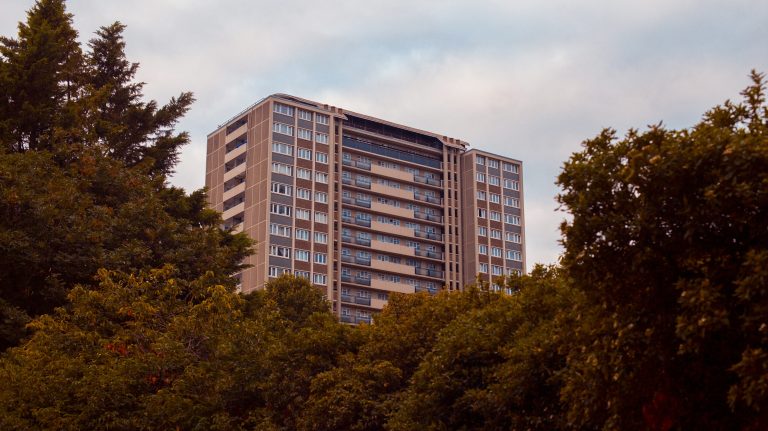“That’s the way we put the key to a decent home in the pocket of everyone who needs a secure and affordable home. And not just homes, but communities, and not just communities but entire towns.”
The government has harked back to the 1945 Clement Atlee government which set up a new towns commission to boost housebuilding and rebuild a country ravaged by the Second World War.
“This party built new towns after the war to meet our promise of homes fit for heroes. Now, with the worst economic inheritance since that war, we will once again build cutting-edge communities to provide homes fit for families of all shapes and sizes,” said Reed.
“I am launching the next generation of new towns taking the lessons from the post-war Labour government housing boom… mobilising the full power of the state to build a new generation of new towns and restore the dream of home ownership to thousands of families across the country.”
Where will Labour’s new towns be?
The New Towns Taskforce has recommended 12 locations to the government and each one will now undergo environmental assessment and consultation before Labour confirms the final new town locations and funding in spring 2026.
A standalone settlement in Adlington, Cheshire East, to serve the growing industries in Greater Manchester and Cheshire, has been recommended to accommodate a new town.
Advertising helps fund Big Issue’s mission to end poverty
The taskforce said a corridor of connected development in South Gloucestershire, across Brabazon and the West Innovation Arc could boost one of the highest productivity areas in the country.
An expanded development bringing together Chase Park and Crews Hill in Enfield could help address London’s acute housing need.
Another London new town could be built on the riverside in Thamesmead, Greenwich to inaccessible land in the city and work with a proposed extension of the Docklands Light Railway.
Redevelopment of the former airbase at Heyford Park in Cherwell could connect it to Oxford and boost innovative technology industries.
There was also a call for an urban development in Leeds’ South Bank to support the city centre’s economic prospects.
An inner-city development and densification in Victoria North, Manchester, is also intended to attract high-skilled workers.
Advertising helps fund Big Issue’s mission to end poverty
The taskforce also targeted a standalone settlement in Marlcombe, East Devon and a renewed town in Milton Keynes, which is itself considered a ‘new town’ developed in the 1960s and 70s.
Densifying development in Plymouth would allow the government to capitalise on its £4.4 billion investment in HMNB Devonport, Western Europe’s largest naval base.
Building in Tempsford, Bedfordshire, could make the best of East West Rail in the Oxford-Cambridge Growth Corridor, the taskforce said.
An expanded development at Worcestershire Parkway, Wychavon would see homes built around the existing train station and act as a model for sustainable, carbon neutral development.
Work is set to start on the three most promising sites – Tempsford, Crews Hill and Leeds Southbank – ahead of the next election.
Each town will have at least 10,000 homes and world-class architects will be enlisted to plan each new town with their own character and distinct, unique identity, the government said.
Advertising helps fund Big Issue’s mission to end poverty
Read more:
What has the reaction been to Labour’s new towns announcement?
Prime minister Keir Starmer said that the new towns plan, alongside the £39bn affordable homes programme over the next decade, will be a significant part of Labour’s “national renewal” in action.
However, it should be noted that few experts believe that Labour will hit its target of delivering 1.5 million homes by 2029.
“My Labour government will sweep aside the blockers to get homes built, building the next generation of new towns,” said Starmer.
“This is national renewal in action, building Britain’s future and giving the key to home ownership to young families across the country as part of the Plan for Change.”
Chris Williamson, president of the Royal Institute of British Architects (RIBA), praised the “ambitious and strategic vision” of the plans.
Advertising helps fund Big Issue’s mission to end poverty
“Achieving this will require a significant and long-term funding commitment. However, the economic and social gains that these new and revitalised areas could deliver are well worth the investment.”
Pro-housebuilding think tank Centre for Cities said, ahead of Labour’s announcement, that most of the new towns should be located in the Greater South East to meet the biggest housing needs.
The think tank’s research found, back in 2023, that the UK had a shortfall of 4.3 million homes and 442,000 homes would need to be built over the next 25 years in England alone to close the gap.
They also reported that new towns can generate up to £6.4bn a year in land value capture.
Andrew Carter, chief executive of Centre for Cities, said: “For new towns to succeed, they must be built in easy reach of jobs, most of which can be found within cities. The Taskforce’s recommended locations reflect this principle, with many of the proposals either close to or within England’s big cities.
“The proposed urban regeneration sites in today’s announcement are particularly encouraging. The UK’s big cities are low density compared to their European peers, which worsens their housing affordability and damages national economic performance.
Advertising helps fund Big Issue’s mission to end poverty
“Turning the government’s new towns ambition into reality will require reformed planning powers, strong local leadership and delivery bodies with money and authority.”
Roger Mortlock, Campaign for Rural England (CPRE) chief executive, said that the locations the taskforce is targeting will see “great swathes of countryside” lost.
“CPRE recognises that well-designed new towns with proper infrastructure have a role to play,” said Mortlock. “Yet with growing pressure on our finite land, all development, including new towns, should follow a brownfield-first approach, led by targets. Too many of these sites will needlessly see great swathes of countryside and the green belt lost to development while the list of brownfield sites grows.
“There is a massive opportunity to rethink how we build new places, faced with the climate and nature crises, that still needs more emphasis. Putting nature at the heart of these communities is not the icing on the cake; it should be the starting point.”
Do you have a story to tell or opinions to share about this? Get in touch and tell us more.
Reader-funded since 1991 – Big Issue brings you trustworthy journalism that drives real change.
Advertising helps fund Big Issue’s mission to end poverty
Every day, our journalists dig deeper, speaking up for those society overlooks.
Could you help us keep doing this vital work? Support our journalism from £5 a month.





